
Sosse is an open-source, enterprise-grade web crawling, archiving, and search engine designed for flexibility and power. Powered by Selenium, it excels at handling JavaScript-heavy websites, enabling users to crawl, archive, and search web pages with ease. Key features include creating HTML and screenshot archives from bookmarks, browsing history, RSS feeds, or other sources, making it a robust alternative to tools like the Wayback Machine. With Sosse, teams can extract and analyze data securely, supported by a user-friendly administration interface and customizable crawl policies. Ideal for self-hosting. In this step by step guide I will show you how to install Sosse on your UGREEN NAS using Docker & Portainer.
This guide works perfectly with the latest Sosse v1.14.0 release.
STEP 1
Please Support My work by Making a Donation.
STEP 2
Install Portainer using my step by step guide. If you already have Portainer installed on your UGREEN NAS, skip this STEP. Attention: Make sure you have installed the latest Portainer version.
STEP 3
Go to Files and open the docker folder. Inside the docker folder, create one new folder and name it sosse. Follow the instructions in the image below.
Note: Be careful to enter only lowercase, not uppercase letters.

STEP 4
Now create two new folders inside the sosse folder that you have previously created at STEP 3 and name them data and db. Follow the instructions in the image below.
Note: Be careful to enter only lowercase, not uppercase letters.

STEP 5
Log into Portainer using your username and password. On the left sidebar in Portainer, click on Home then Live connect. Follow the instructions in the image below.

On the left sidebar in Portainer, click on Stacks then + Add stack. Follow the instructions in the image below.

STEP 6
In the Name field type in sosse. Follow the instructions in the image below.
services:
db:
image: postgres:18
container_name: Sosse-DB
hostname: sosse-db
user: 999:10
security_opt:
- no-new-privileges:true
healthcheck:
test: ["CMD", "pg_isready", "-q", "-d", "sosse", "-U", "sosseuser"]
timeout: 45s
interval: 10s
retries: 10
volumes:
- /volume1/docker/sosse/db:/var/lib/postgresql:rw
environment:
POSTGRES_DB: sosse
POSTGRES_USER: sosseuser
POSTGRES_PASSWORD: sossepass
restart: on-failure:5
sosse:
image: biolds/sosse:pip-compose
container_name: Sosse
healthcheck:
test: timeout 10s bash -c ':> /dev/tcp/127.0.0.1/80' || exit 1
interval: 10s
timeout: 5s
retries: 3
start_period: 90s
environment:
SOSSE_DB_NAME: sosse
SOSSE_DB_USER: sosseuser
SOSSE_DB_PASS: sossepass
SOSSE_DB_HOST: sosse-db
SOSSE_ALLOWED_HOST: "*"
SOSSE_SECRET_KEY: dOxZYTTZgXKMHkqLBIQVImayQXAVWdzGBPuFJKggzcgvgPJPXpWzqzKaUOIOGGIr
SOSSE_USE_TZ: true
SOSSE_TIMEZONE: Europe/Bucharest
ports:
- 9291:80
volumes:
- /volume1/docker/sosse/data:/var/lib/sosse:rw
depends_on:
- db
restart: on-failure:5
Note: Before you paste the code above in the Web editor area below, change the value numbers for user with your own UID and GID values. (Follow my step by step guide on how to do this.) 999 is my personal UID value and 10 is my personal GID value. You have to type in your own values.
Note: Before you paste the code above in the Web editor area below, change the value for SOSSE_SECRET_KEY. (Generate your own Random 64 length SOSSE_SECRET_KEY.)
Note: Before you paste the code above in the Web editor area below, change the value for SOSSE_TIMEZONE. (Select your current Time Zone from this list.)

STEP 7
Scroll down on the page until you see a button named Deploy the stack. Click on it. Follow the instructions in the image below. The installation process can take up to a few minutes. It will depend on your Internet speed connection.
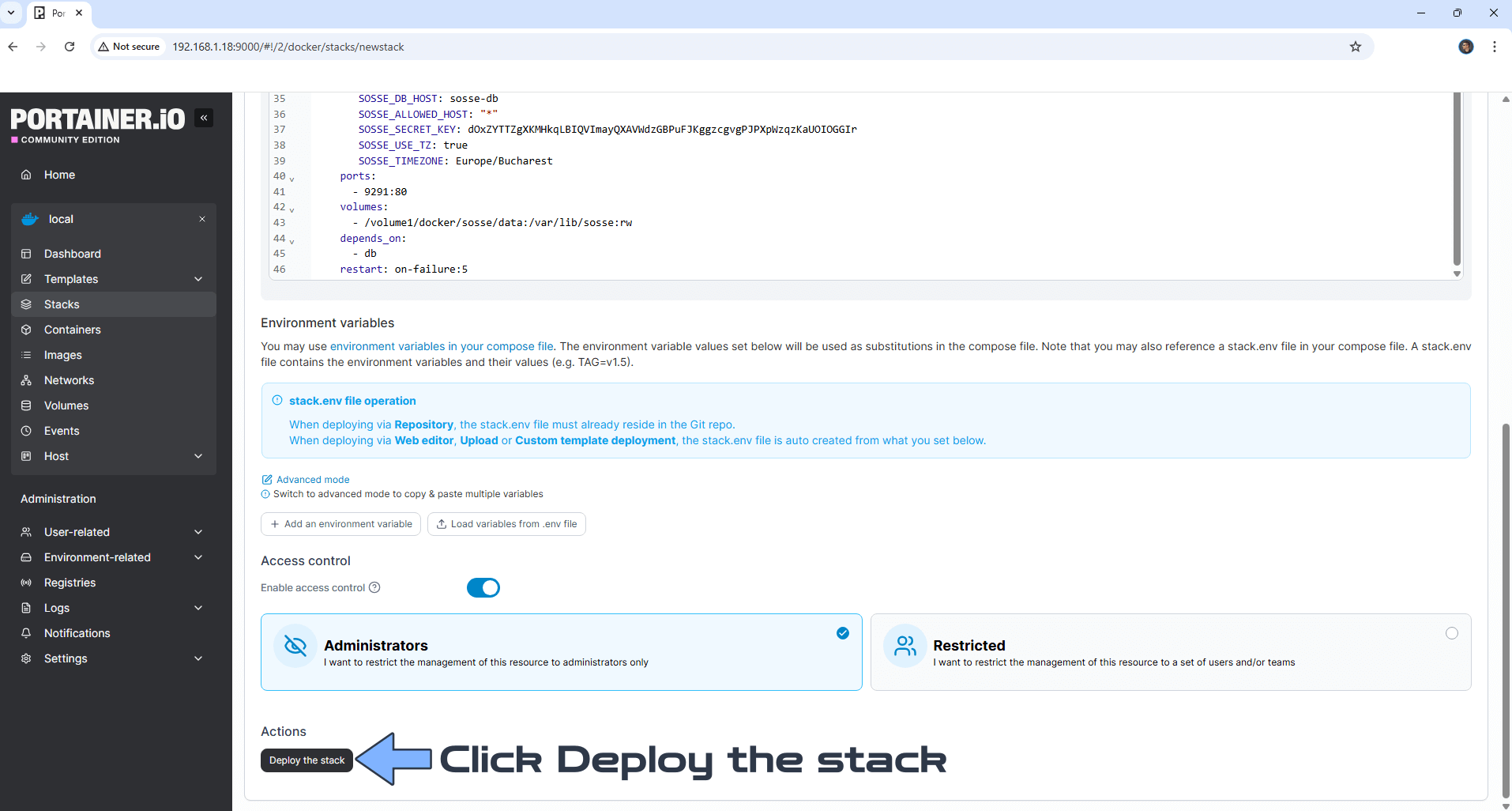
STEP 8
If everything goes right, you will see the following message at the top right of your screen: “Success Stack successfully deployed“.

STEP 9
🟢Please Support My work by Making a Donation. Almost 99,9% of the people that install something using my guides forget to support my work, or just ignore STEP 1. I’ve been very honest about this aspect of my work since the beginning: I don’t run any ADS, I don’t require subscriptions, paid or otherwise, I don’t collect IPs, emails, and I don’t have any referral links from Amazon or other merchants. I also don’t have any POP-UPs or COOKIES. I have repeatedly been told over the years how much I have contributed to the community. It’s something I love doing and have been honest about my passion since the beginning. But I also Need The Community to Support me Back to be able to continue doing this work.
STEP 10
The installation process can take up to a few seconds/minutes. It will depend on your Internet speed connection. Now open your browser and type in http://ugreen-ip-address:9291 If everything goes right, you will see the Sosse Login page. Type in the default Username and Password, then click Log in.
. Follow the instructions in the image below.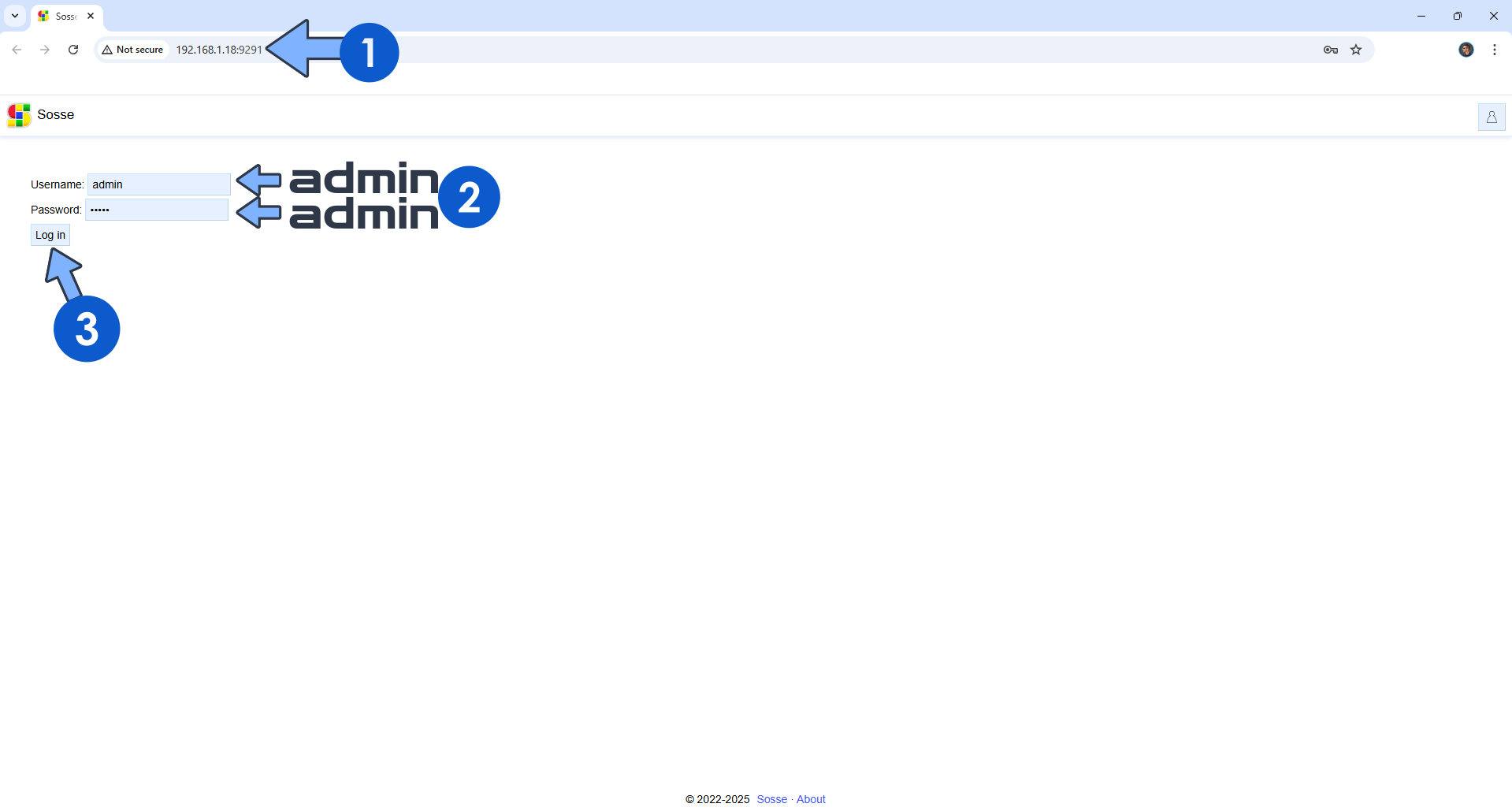
STEP 11
At the top right of the page, click on the user icon, then Profile. Switch the theme to Dark then Save. Click Change Pass. Follow the instructions in the image below.
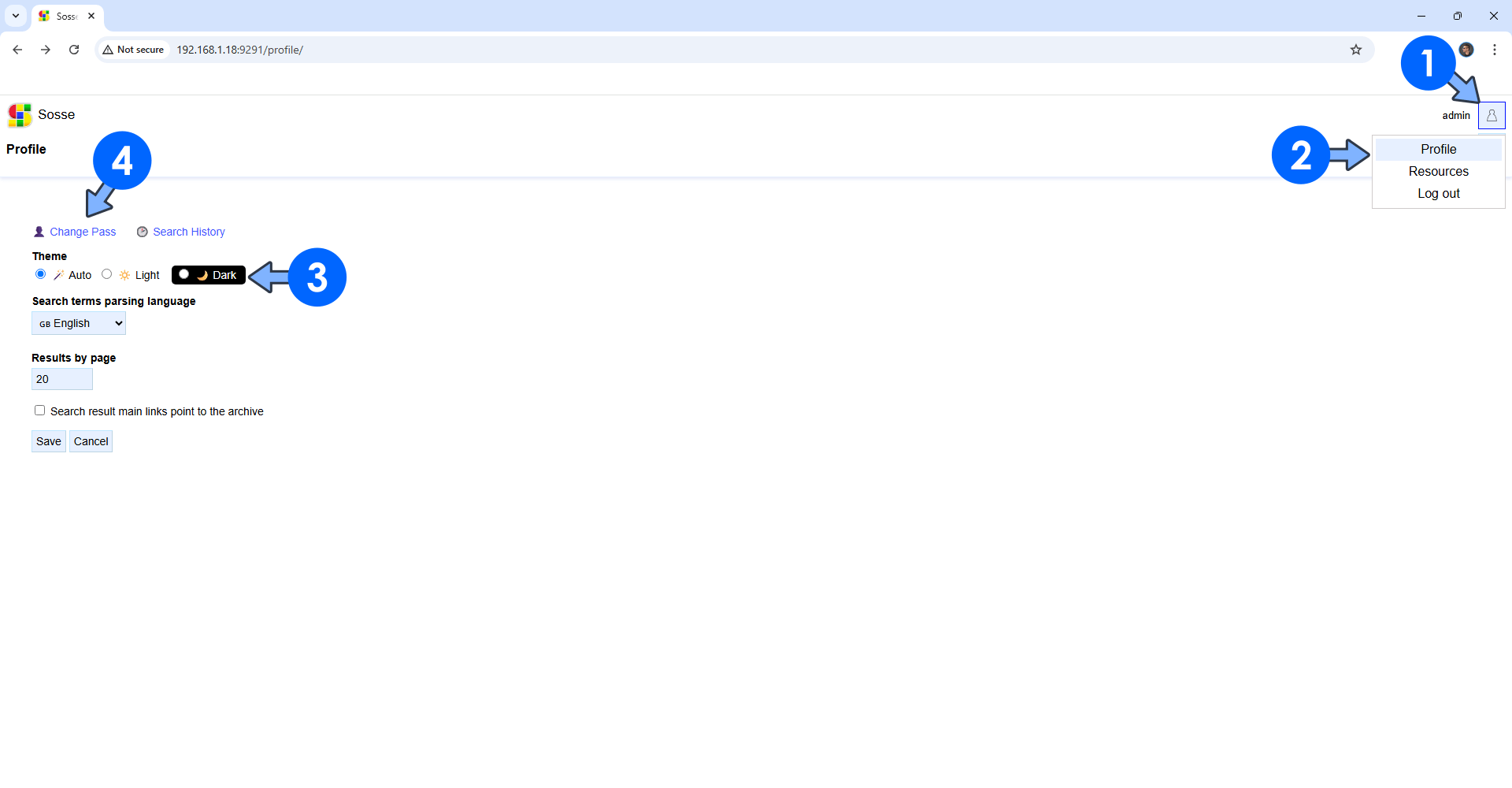
STEP 12
Change the default admin password with your own password. Click CHANGE MY PASSWORD. Follow the instructions in the image below.
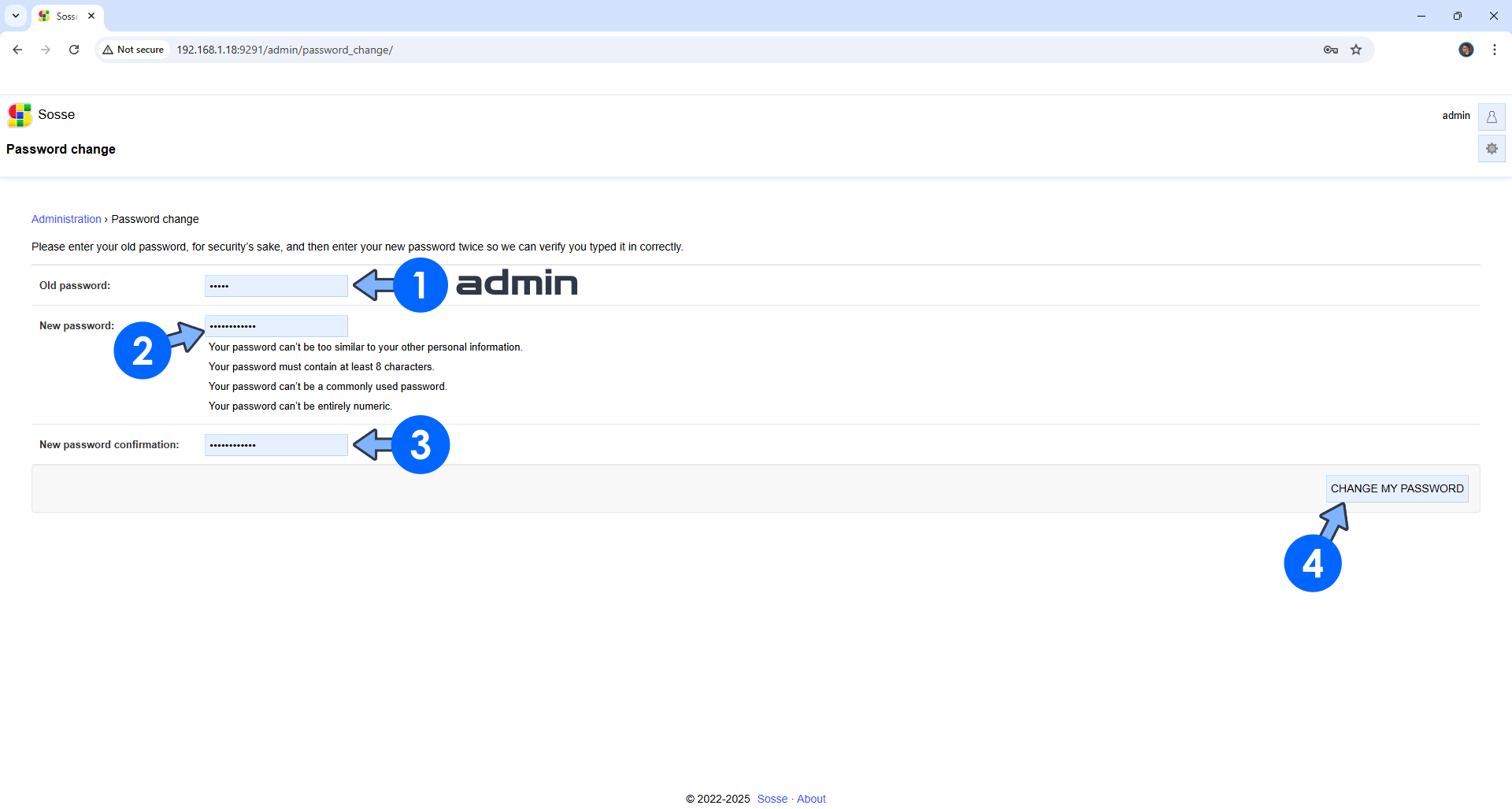
STEP 13
Log out from Sosse, then Log in using the new password.
STEP 14
At the top right of the page, click on the Settings Icon then Crawl a new url. In the apposite field, type in the URL that you want to crawl, then click Check and queue. Follow the instructions in the image below.
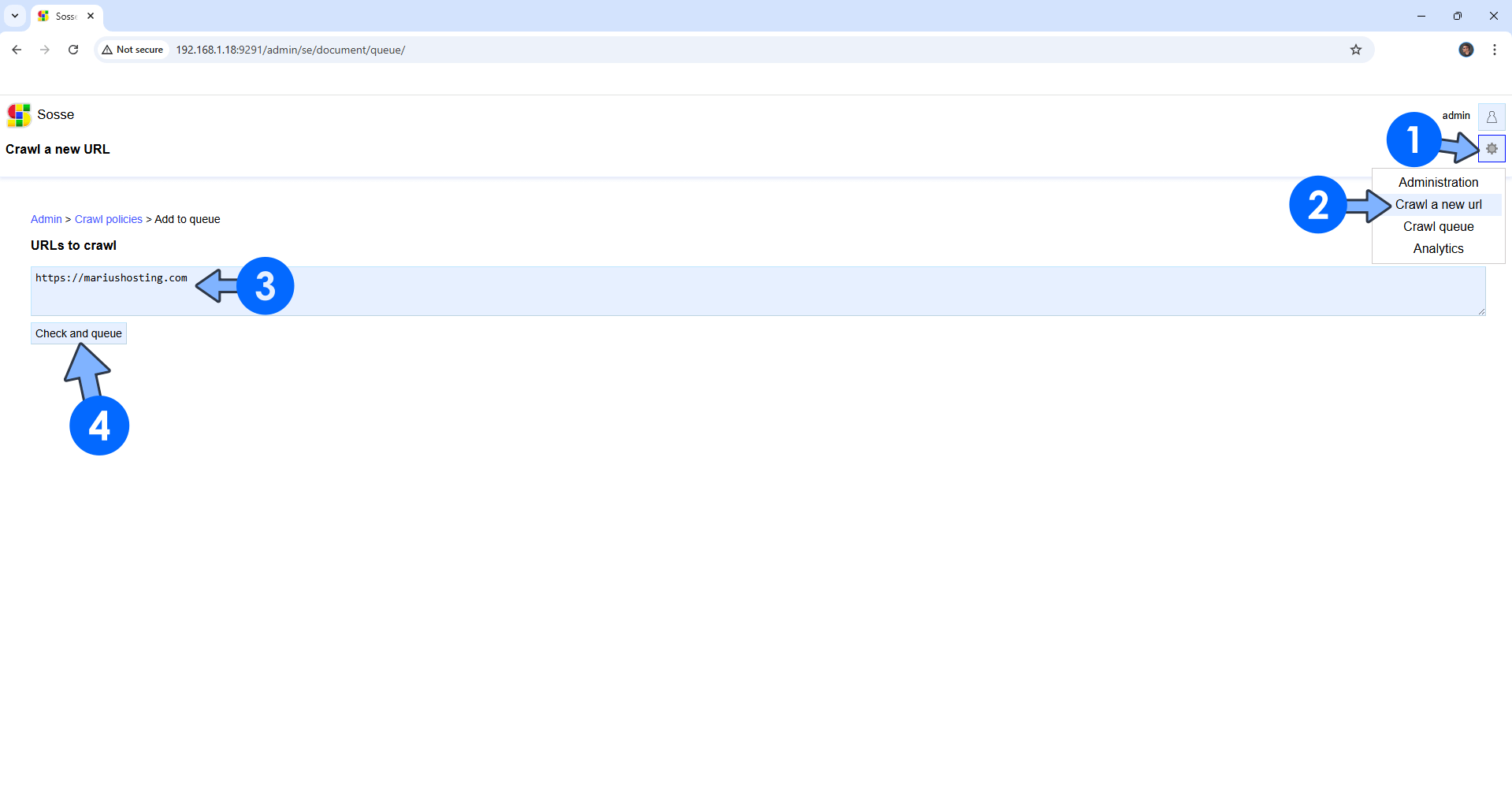
STEP 15
Add your own Crawl policy, then click Confirm. Follow the instructions in the image below.
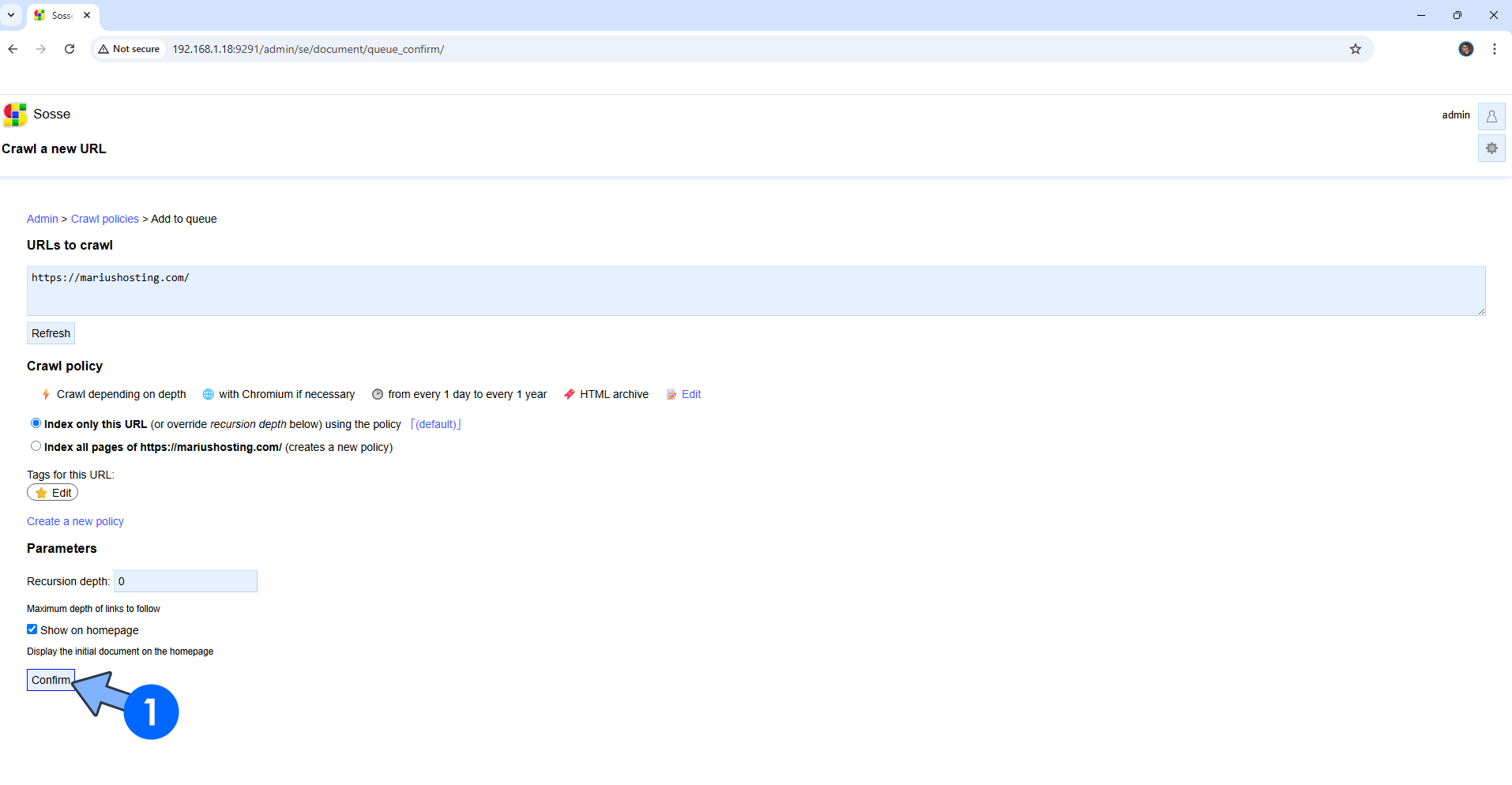
STEP 16
The URL will be added in the Crawl queue. Wait a few minutes. Follow the instructions in the image below.
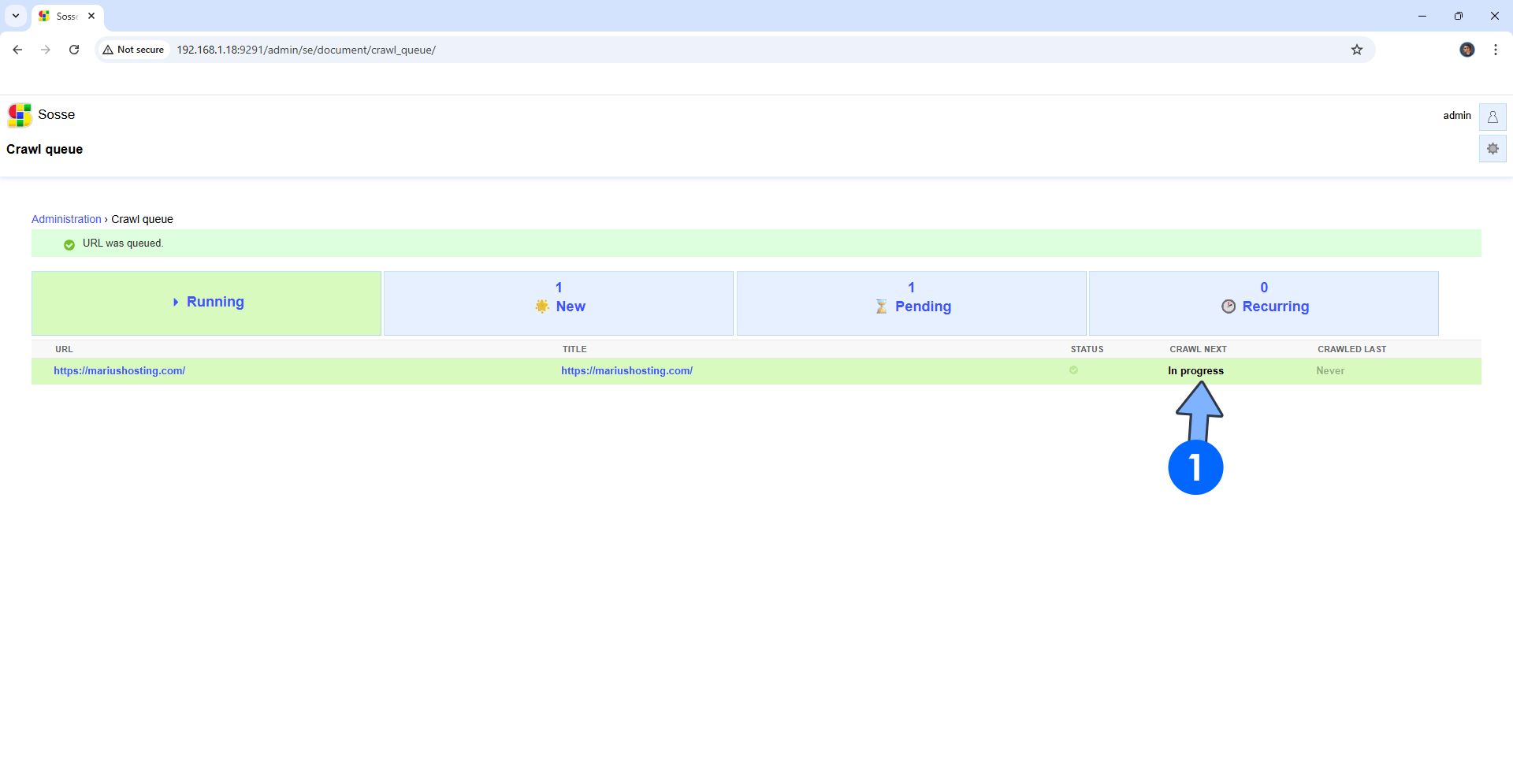
STEP 17
After the crawl is done, click on the TITLE Link. Follow the instructions in the image below.

STEP 18
Your crawled URL at a glance!

STEP 19
Your Sosse Administration page at a glance. You can find the Sosse Administration page at the top right of the page by clicking the Settings icon.
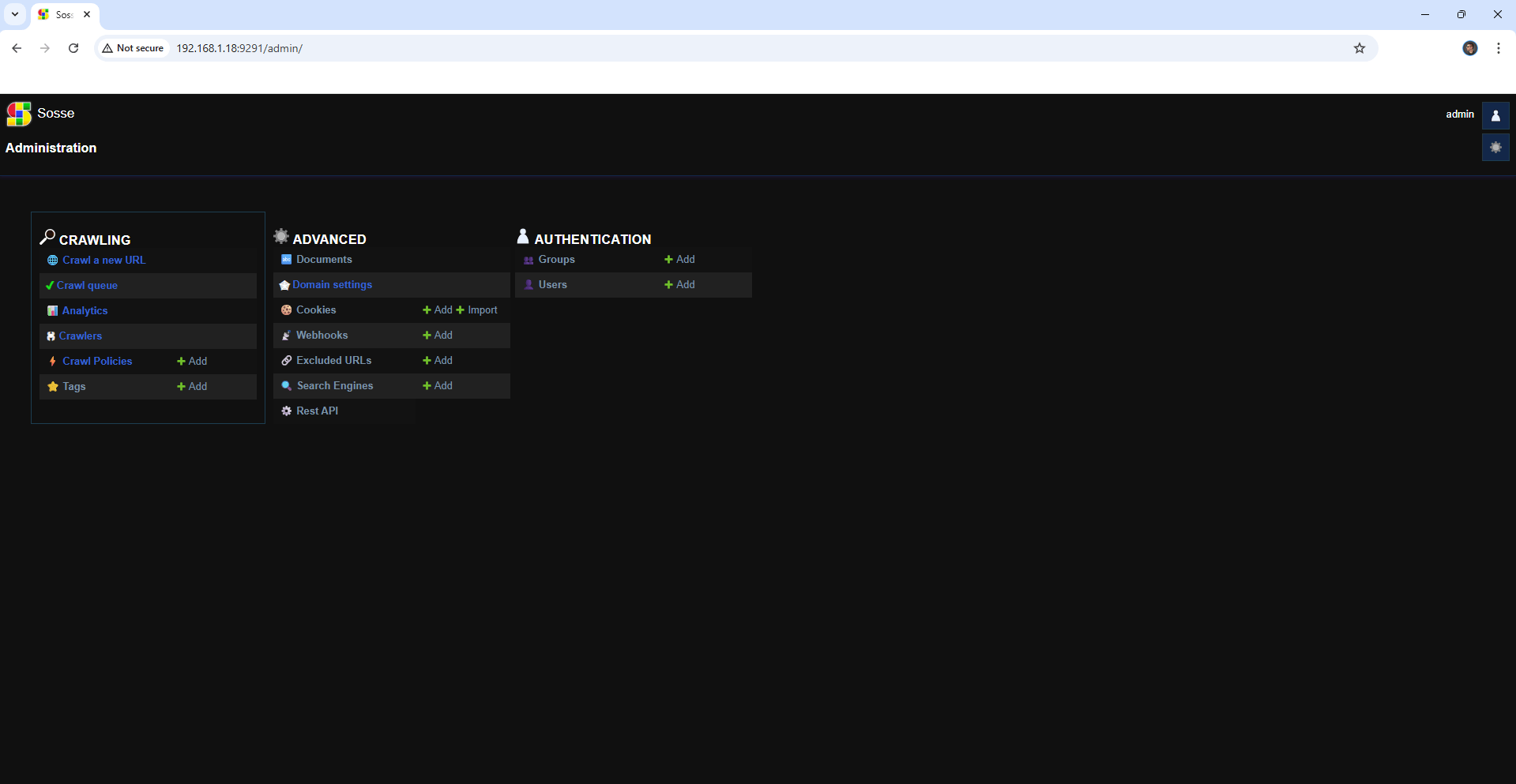
Enjoy Sosse!
Note: If you want to run the Sosse container over HTTPS, check out How to Run Docker Containers Over HTTPS on Your UGREEN NAS.
🆙Note/Update/Container: How to Update Your Docker Containers on UGREEN NAS Using Portainer.
🐳Note: How to Create Docker Shortcuts on Desktop.
🆕Note: How to Update Portainer to the latest version.
🆕Note: How to Clean Docker.
This post was updated on Thursday / March 5th, 2026 at 9:06 AM
